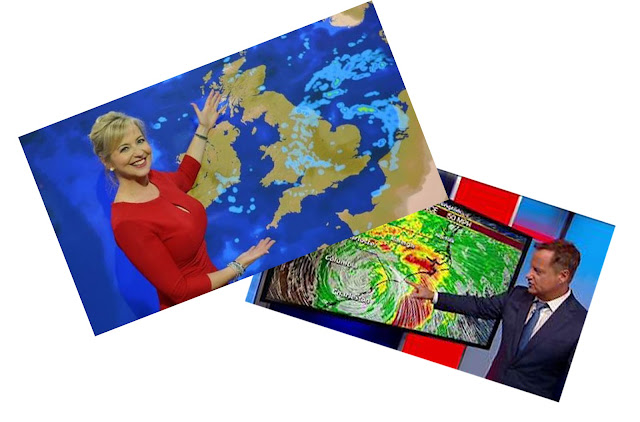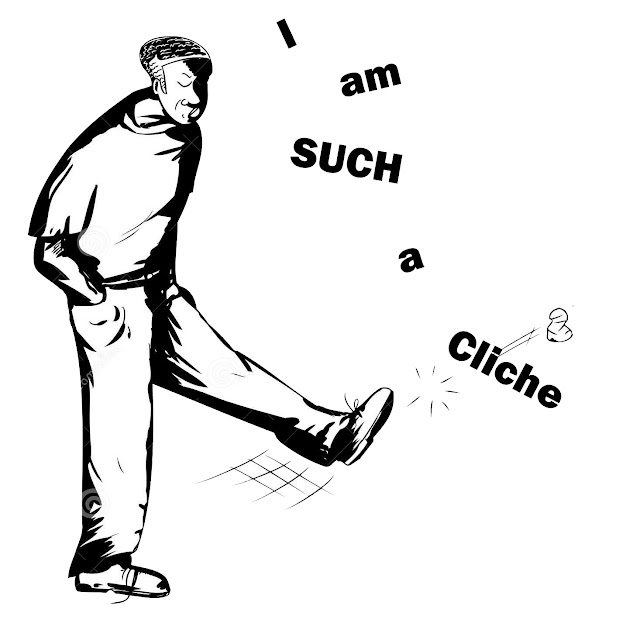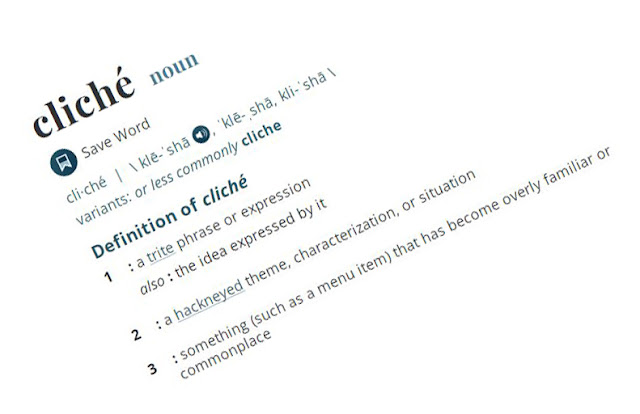It even sounds like a sneer when said out loud.
"What a cliche!"
Almost onomatopoeic, but not quite. (Hey! don't look at me if you can't pronounce that doozy. I can't either. Besides I'm not in charge of making this shit up! Nobody asked me what we should call words like plunk or cackle or flick that imitate the sound they describe!)
I'm not sure if there's an inclusive term for words that are typically said with an attached emotion. Words like 'sleazy' or 'magnificent'. But come to think of it, 'sparkle' is another one of those attached emotion words that doesn't actually sound like it's definition yet it is often included in lists of onomatopoeic words, so maybe 'cliche' is onomatopoeic.
Regardless of all that crap, which is only important to linguists, the origin of the word - you know, cliche - is slightly fascinating - even if its origins are French.
Those big cast iron plates that hold the reversed letters and/or images on printing presses are called stereotypes.
So already we have an object used to make multiple, identical, copies lending its name to the definition of multiple, identical, copies.
Then - and here's where we get to the French bit - the sound a stereotype makes as it slaps down against the paper on the platen is a click - or in French, a cliché. (OK, I make no secret of the fact, after having been forced to work with them for a number of years, that I am not a particular fan of the French culture so I'm not going to pass up the opportunity for such an easy dig: - Leave it to the French to screw up an otherwise perfectly good onomatopoeia!)
Merriam-Webster, pretty much negatively, defines cliche as a phrase or expression that is: 1) trite, 2) hackneyed, and 3) over used.22 years ago William F Buckley Jr. in attempting to make a point about cliches, was quoted in National Review as saying "Non-amateur writers avoid industriously the word Orwellian".
First off, I don't know who he was trying to impress with his hackneyed reversal (See what I did there?) of the positions of 'avoid' and 'industriously' since, unlike Spanish and other romance languages, in the English language (and Buckley would be the first to tell you he was American through and through) the adjective, in this case 'industriously' is most commonly placed before the verb 'avoid'.
Secondly, his pretentiousness is showing.
For someone who's stock-in-trade was words, both written and spoken, his dismissal of the effectiveness of the cliche is baffling.
Orwell was another wordsmith that dissed cliches, (Can you see the irony here!) writing in his Rules of Writing to 'never use a metaphor, simile, or other figure of speech which you are used to seeing in print'.
Well have you ever tried reading either of these men? It's painful! A real slog where you can never get any momentum going because you are constantly having to stop and decipher just what the heck they are saying.
Language is, first and foremost, a tool for communicating, for sharing information. And shorthand of any sort, be it the classical, squiggly form, or that used in today's electronic communications, (LOL. WTF) is an efficient way of communicating. And cliche's are the shorthand of words.
And, since I've already touched on it, almost every English-speaker, at least of my generation, knows exactly what is being expressed in that single word 'Orwellian'. Yet it will take Buckley's 'avoiding industriously' non-amateur writer, such as George Orwell himself, half a book to express the same concept. (He used the other half of the book to detail how to fight back against such a dystopian situation.)
 |
| When I Googled images with 'weather presenter' the first 80 hits were female. Don't know what that means but it was interesting. |
Now I'm not saying there aren't some cliche's out there that need to be retired - badly.
For instance, "If you don't like the weather here in <insert your location> just wait 5 minutes!", usually said with a heavy dollop of perverse pride.
Oh man! Can we just make this spindled, mangled, and abused cliche go away already?!!!
With the exception of a few isolated places, like maybe Southern California, the weather changes quickly all over the world, but wherever I have been in that world I hear this annoying, useless banality repeated over and over again, and every time as if this was the only place in the world that happened.
So this is one cliche that's on my don't-do-it list. I won't use it and I don't want to hear it - ever!
But there are so many other, useful cliches out there that deserve the respect they don't often get. 'Mad as a hornet' is so much more evocative and elegant than 'really really mad'. 'A dead ringer' is so much more efficient than 'she looked and acted so much like that other person I couldn't tell them apart'. And, ironically, 'A stitch in time saves nine' takes so much less time to make the point than 'if you slow down and do the job properly the first time you won't have to come back and redo it again later'.
Gerard de Nerval said "The first man that compared a woman to a rose was a poet, the second an imbecile."
He was wrong.
That second man was an unpretentiously effective communicator.






Umm, not to put to fine a point on it but ...industriously is an adverb.
ReplyDeleteI'd hate for William tuh notice.
Oh crap! My knickers are showing! Or at least my faulty grasp of my native language.
Delete“We must all make the choice between what is right and what is easy.” -Professor Dumbledore
ReplyDeleteFortunately once on a while the right choice is also the easy choice!
Delete